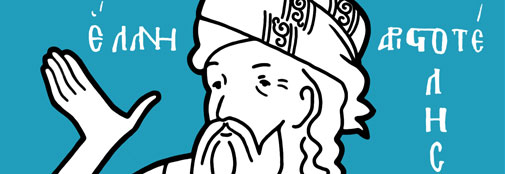[First posted in AWOL 4 February 2015, updated 27 April 2019]
Romans Go Home! Latin apps for iPad, iPhone, Android and Mac OS X
Romans Go Home! Latin apps for iPad, iPhone, Android and Mac OS X
Romans Go Home! is the home of the App Store's largest collection of apps for Latin students of all levels, making Latin apps for iPad, iPhone, iPod Touch, Android and Mac OS X. Our flagship app is called SPQR, and brings together a wealth of material such as books in Latin and English, dictionaries, grammar tools, learning guides, photos of archaeological sites, and more. We also make games for Latin students, which can really bring your classroom alive!
We love Latin as much as you do, and we consider it our mission to help kids and adults alike learn Latin using their phones and tablet devices - if you have any suggestions for how we can make our apps better, please get in touch!



















